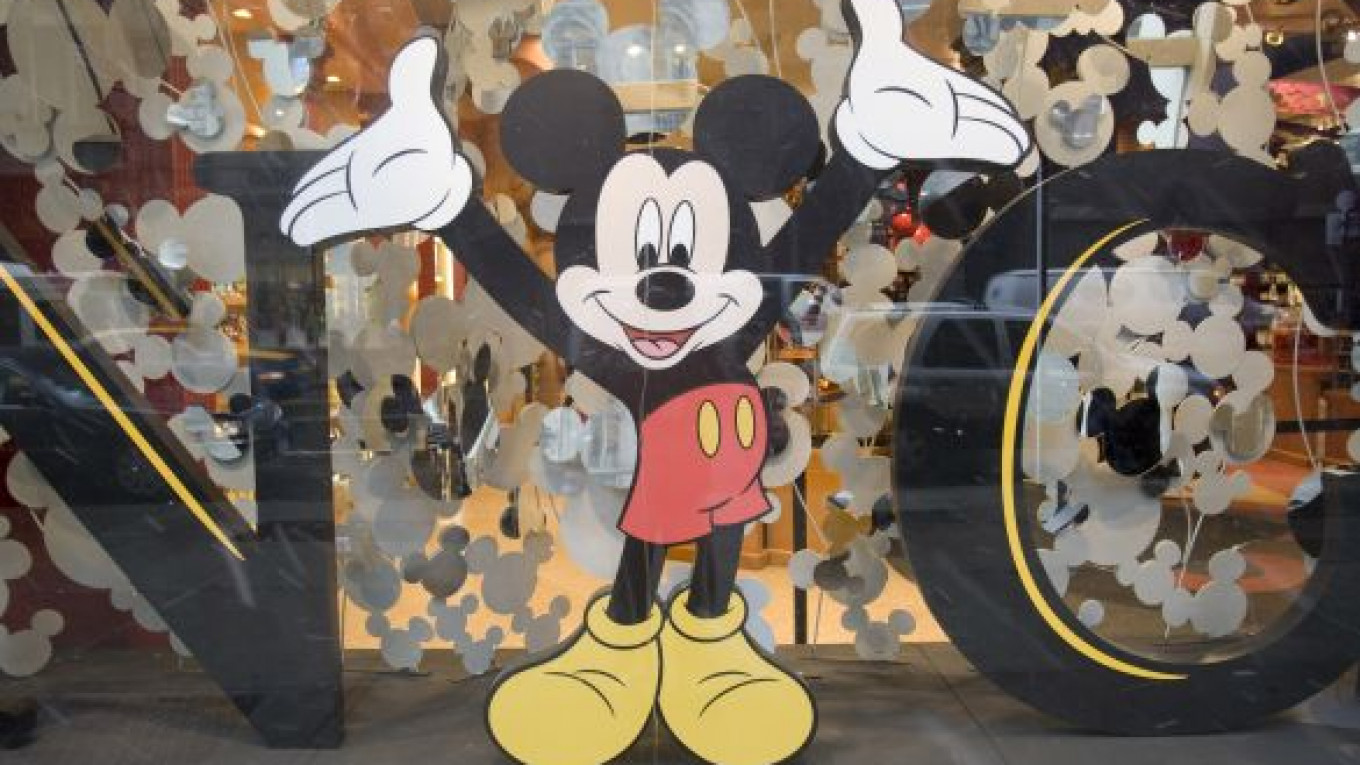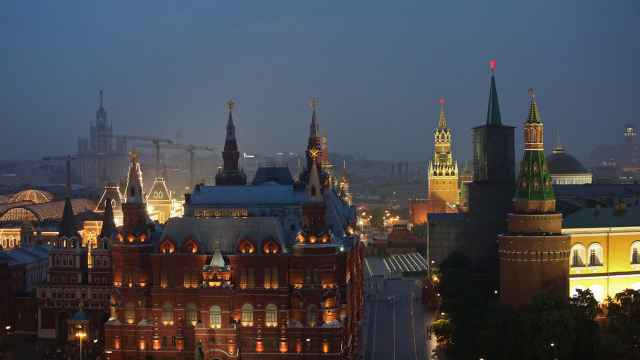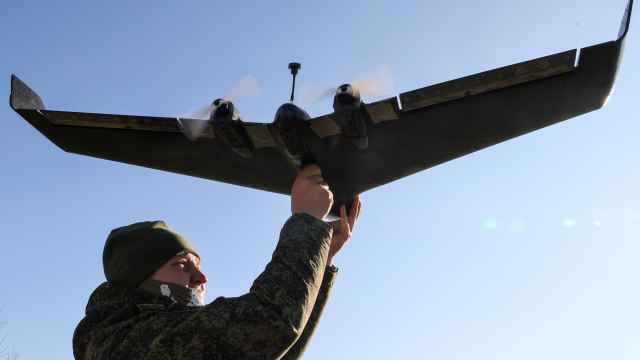U.S.-based Walt Disney Co. will pay United Television Holding a total of $300 million for a 49 percent stake in the domestic 7TV channel, gaining a foothold in the local terrestrial broadcast market that it had been seeking since 2008.
The price includes a premium for obtaining access to Russia's terrestrial broadcasting and the prospects Disney will gain from buying the channel, said Anna Lepetukhina, an analyst at Troika Dialog.
"The number of terrestrial channels is limited in Russia, and launching such a channel locally is rather difficult for a foreign major," she said by phone.
Disney, which launched a cable channel in Russia last year, will open the terrestrial Disney channel to replace 7TV, an entertainment network targeting an audience of 18- to 54-year-olds.
After launching the channel, the U.S. company will reach more than 75 percent of the country's audience in its 54 biggest cities, including Moscow and St. Petersburg, according to a joint statement by Disney and United Television.
The sides did not disclose the size of the deal, but a person familiar with the matter, who spoke on condition of anonymity, said Friday that it amounted to $300 million.
Both Disney and United Television declined to comment on the issue.
Disney will launch its channel early next year, the company said. The deal is pending regulatory approval, which is widely expected after Disney president and CEO Robert Iger met with United Television co-owner and billionaire Alisher Usmanov and Prime Minister Vladimir Putin in Moscow on Thursday.
Disney believes that buying 7TV is "a good investment," Iger said at the meeting Putin.
Putin said he hoped that the deal would be "a positive, kind threshold in Russia's media market."
It was unclear whether Disney plans to close its existing cable channel or will operate along with the terrestrial one.
Lepetukhina said the company could retain both channels, which will target different audiences.
"A cable channel targets a small number of Russia's population, while a terrestrial channel reaching 75 percent of the audience provides a serious advantage," she said, adding that the Disney cable channel could focus on children, while the terrestrial channel could reach a broader audience including adults.
Launching the new channel, which will operate as a family entertainment network, is "an important step" in the company's future development, said United Television executive director Dmitry Sergeyev. "We're sure the combination of Disney's global program and marketing expertise and our knowledge of the Russian market will allow [us] to create a very successful channel in terms of audience and financial performance," he said by e-mail.
United Television will hold 51 percent in the Disney channel. The company also owns music channel MuzTV.
"We expect a family channel combining the best Disney programming with original Russian TV shows will be of great interest to the audience. We are excited that our partner, one of the world's largest media companies, believes in the Russian market and our company," Usmanov said in the joint statement.
Russia is an "important growth market" for the company, which sees international expansion as a "key strategic priority," Iger said.
Disney has been seeking to acquire a local terrestrial channel since 2008, when it failed to get regulatory approval to buy the Media One holding, which included 30 regional broadcasters and was subsequently merged with Usmanov's AF Media to form United Television.
Disney is the third foreign media company buying into the Russian market. Swedish media company Modern Times Group owns 38.19 percent in CTC Media, whose assets include channels like CTC, Domashny and Perets, while Luxembourg's RTL Group holds 7.5 percent in National Media Group, which owns Ren-TV and St. Petersburg's Channel Five and has 25 percent in Channel One.
Despite the competition television is facing from the Internet, the domestic TV market remains attractive for foreign investors because it allows them to reach a broad audience, Lepetukhina said.
"Almost half of [companies'] advertising budgets go to television," she said.
The volume of terrestrial television ads was 61.1 billion rubles in the first half of this year, which is 29 percent above the first six months of 2010, according to the Association of Communication Agencies of Russia.
But this figure is likely to decline in the future, as competition from the cable television and Internet grows, Lepetukhina said.
"Growth rates are likely to decrease, but the market still has potential," she said.
A Message from The Moscow Times:
Dear readers,
We are facing unprecedented challenges. Russia's Prosecutor General's Office has designated The Moscow Times as an "undesirable" organization, criminalizing our work and putting our staff at risk of prosecution. This follows our earlier unjust labeling as a "foreign agent."
These actions are direct attempts to silence independent journalism in Russia. The authorities claim our work "discredits the decisions of the Russian leadership." We see things differently: we strive to provide accurate, unbiased reporting on Russia.
We, the journalists of The Moscow Times, refuse to be silenced. But to continue our work, we need your help.
Your support, no matter how small, makes a world of difference. If you can, please support us monthly starting from just $2. It's quick to set up, and every contribution makes a significant impact.
By supporting The Moscow Times, you're defending open, independent journalism in the face of repression. Thank you for standing with us.
Remind me later.






